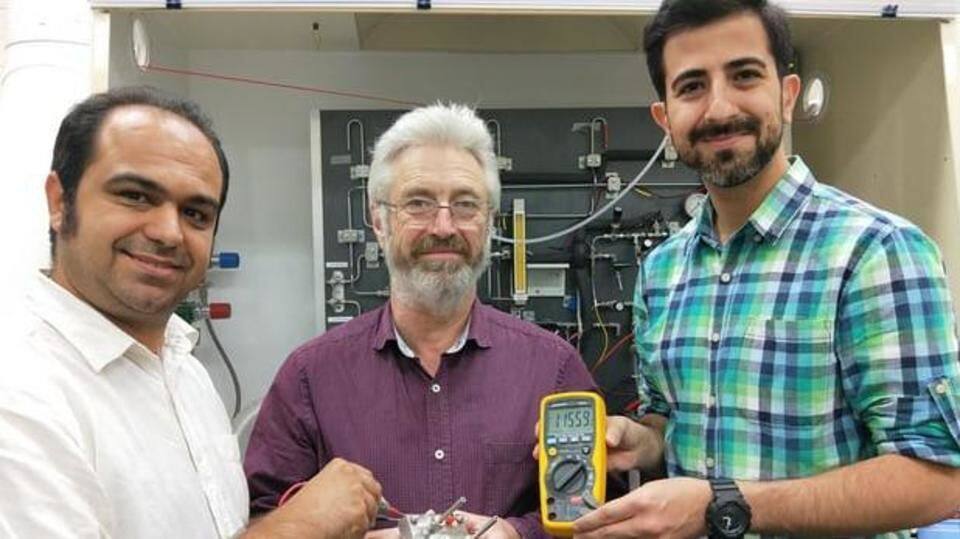
World's first rechargeable proton battery that doesn't use lithium created
What's the story
In a step towards cheaper and environment-friendly energy storage, a team of scientists from the RMIT University in Melbourne has created the world's first rechargeable proton battery that uses carbon and water instead of lithium, which is a relatively rare and pricey metal. The battery produces no carbon emissions and can store electricity from zero-emission renewables. Here are the details.
Working
It's a hybrid between chemical battery and hydrogen fuel cell
The small-scale prototype is a hybrid between a chemical battery and a hydrogen fuel cell. When it is charged, the water inside is split to produce protons, which bond to carbon electrodes without producing hydrogen gas. To tap stored energy, hydrogen ions lose an electron to re-form protons. The electrons provide power while the hydrogen protons combine with oxygen and go back to being water.
Availability
The battery could be commercially available within 10 years
According to lead researcher Professor John Andrews, the battery could be commercially available within five to 10 years. "When it is commercially available, it would be a competitor to the Tesla Powerwall and then eventually we'd hope we might find applications at the scale of the huge Tesla battery [in South Australia] and even larger," he said.
Data
The 1.2-volt rechargeable proton battery is only a small prototype
Since a proton battery never produces hydrogen gas, its energy efficiency is at par with lithium-ion batteries, which is not the case with fuel cells. The current rechargeable, 1.2-volt battery is small, which researchers want to scale up to make it more energy efficient.